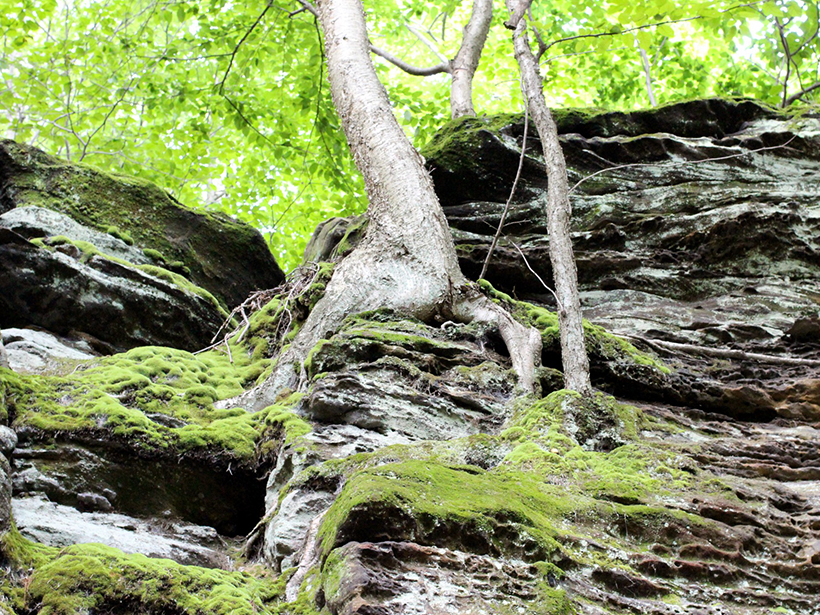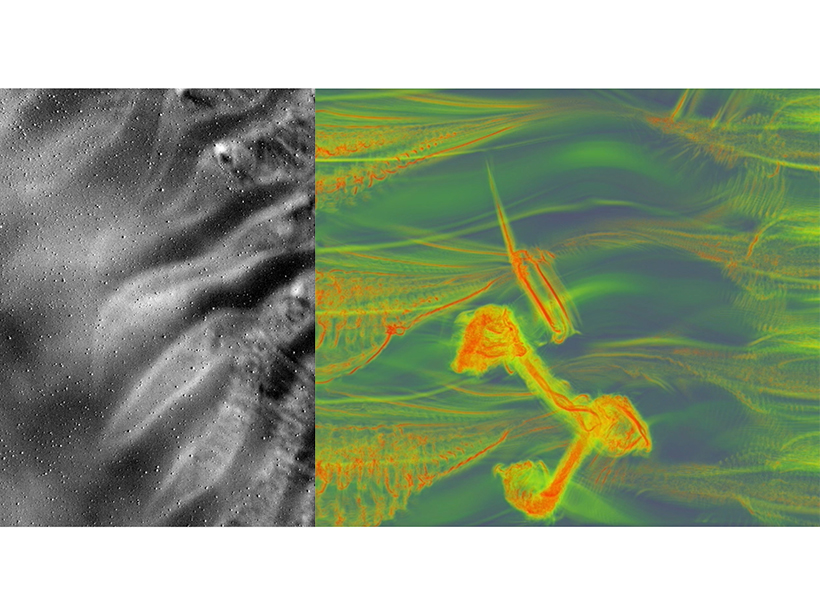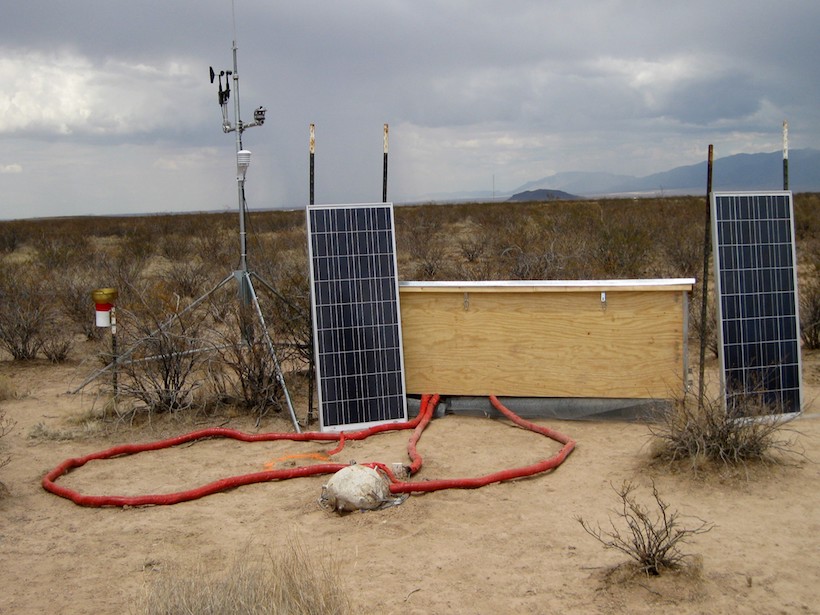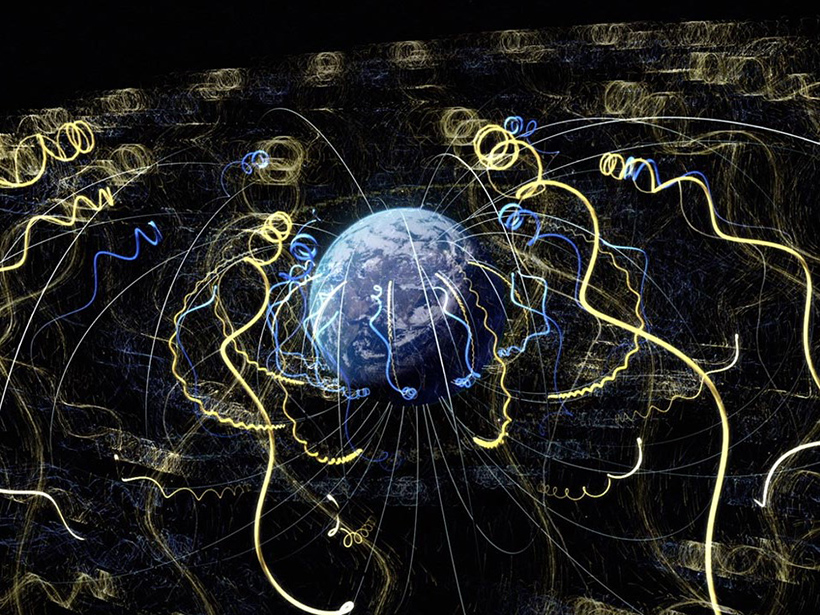Deep tree roots bring respiring microbes into broken bedrock, generating carbon that’s released into the environment. New research explores this oft-overlooked carbon source.
Research Spotlights
Research spotlights are plain-language summaries of recent articles published in AGU’s suite of 24 journals.
Determining Dissolved Organic Carbon Flows into the Gulf of Alaska
A new model determines freshwater and dissolved organic carbon discharge to the Gulf of Alaska from one of the most geographically diverse but understudied regions on the planet.
Juno Maps Water Ice Across Northern Ganymede
Infrared observations from instruments on the Juno spacecraft cover regions of Ganymede not visible to Earth-based telescopes.
Newly Identified Instabilities Enhance Atmospheric Turbulence
New high-resolution imaging and modeling reveal the first evidence of enhanced turbulence due to gravity wave modulation of Kelvin-Helmholtz instabilities.
Warmer Climates Speed Breakdown of Rocks
Researchers listened to boulders for thousands of hours to investigate how they weathered.
First Detection of a Built-In Wobble on Another Planet
Spacecraft find that Mars oscillates 10 centimeters off its axis of rotation.
Tracking How Plastic Moves in the Coastal Ocean
Researchers used a wave tank to study the movement of plastic particles experimentally and to understand the role of particle density in drift behavior.
El Zooplancton Gelatinoso Transfiere Una Cantidad Significativa de Carbono a las Profundidades del Océano
Un nuevo estudio muestra que las medusas y las salpas marinas no reciben el crédito que merecen por su papel en el ciclo del carbono en el océano.
A New Approach to Characterizing Space Plasmas
When plasma particle velocity distributions have multiple, distinct parts, treating each as a separate beam may yield more intuitive results.
Certain Rock Formations Can Lead to In-Home Radon Risks
Researchers in Kentucky have merged results from home test kits with the state’s geologic map to produce a map of indoor radon potential based on the geology underlying homes in the state.










